Former Audi CEO Stadler To Stand Trial Over Dieselgate Fraud On Wednesday
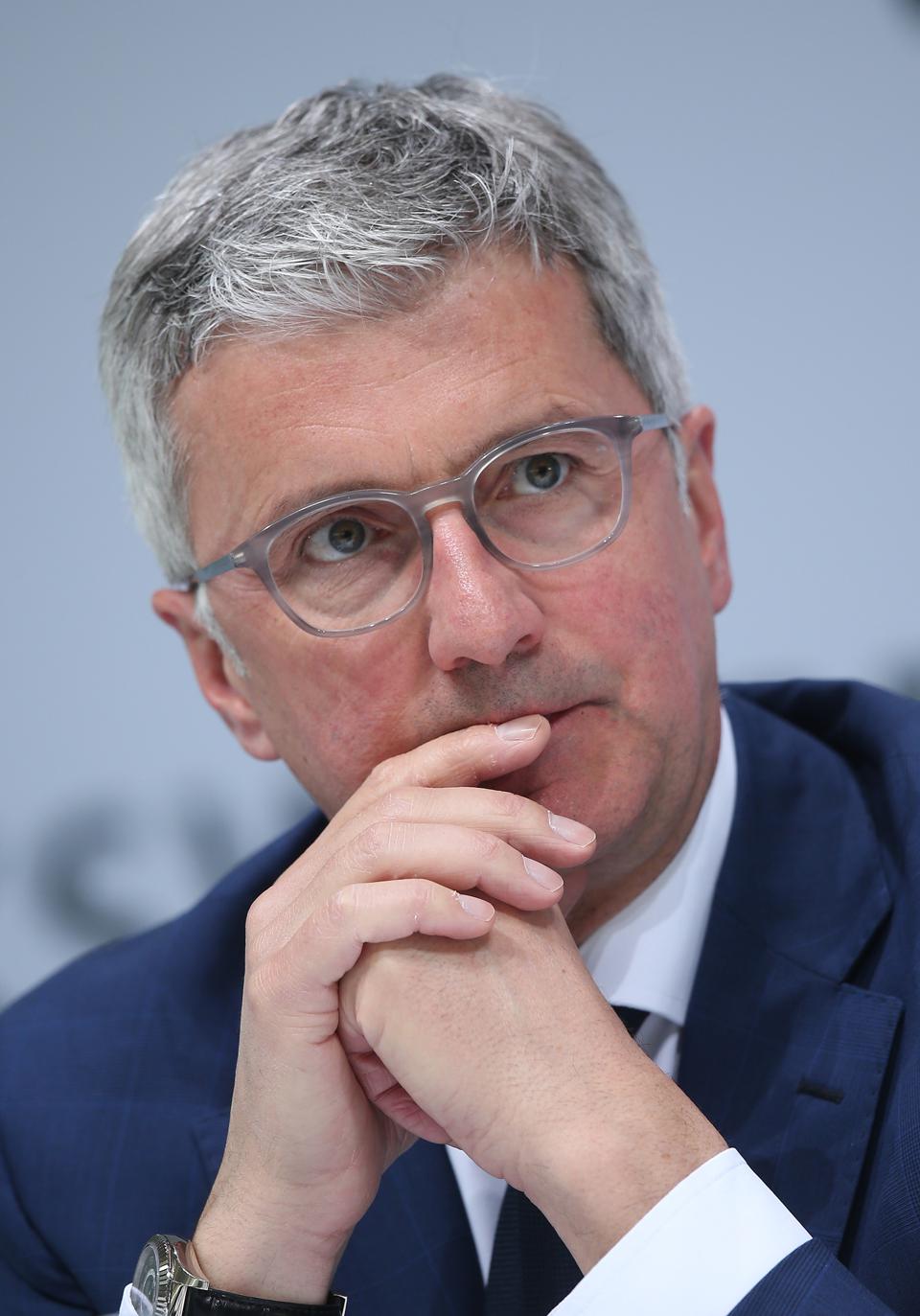
Former Audi CEO and Volkswagen Group board member Rupert Stadler will become the first Volkswagen … [+]
Getty Images
Former Audi CEO Rupert Stadler will become the first senior executive to stand trial over the 12-million vehicle Dieselgate emissions cheating scandal on Wednesday – five years after the Volkswagen Group admitted its guilt.
Stadler, 57, has eight million reasons to be found innocent over the charges that attract a 10-year prison sentence, with the Munich trial expected to run until late 2022.
He will stand alongside three other Volkswagen Group executives and engineers, including former Audi and Porsche development head, Wolfgang Hatz.
Hatz, who lead Porsche’s sports car efforts as well, was bizarrely interviewed on the German television coverage of the Le Mans 24 Hour race earlier this month.
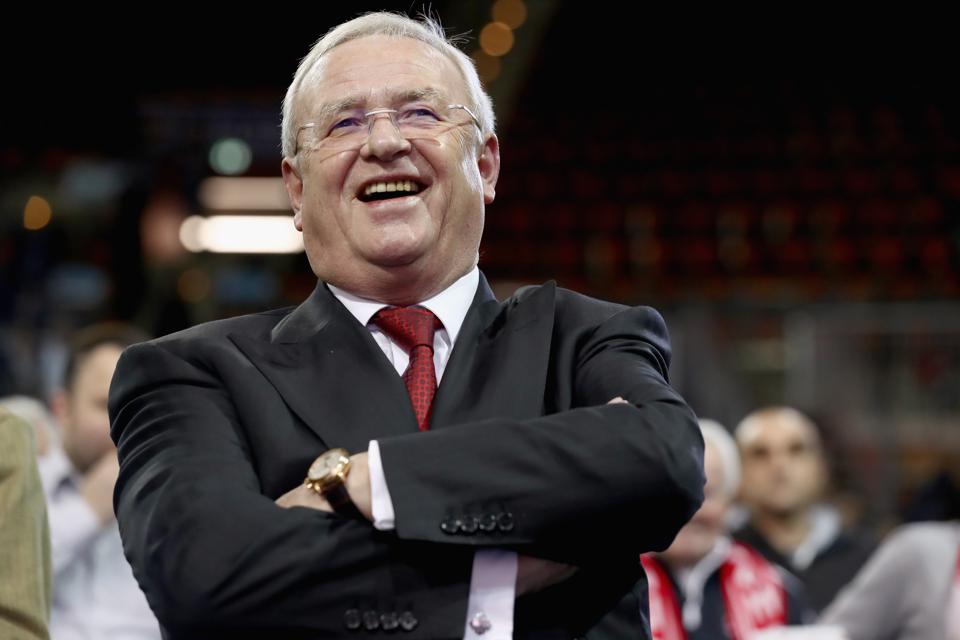
Disgraced former Volkswagen Group CEO Dr Martin Winterkorn faces his own Dieselgate trial in … [+]
Bongarts/Getty Images
The man at the apex of the Volkswagen Group triangle during the cheat, disgraced former CEO Dr Martin Winterkorn, is also awaiting trial in Germany on charges of fraud, market manipulation, embezzlement and competition law violations.
Winterkorn’s trial will be in the northern city of Braunschweig (Brunswick), which is the capital of the region Volkswagen is headquartered in, while Audi is in the southern state of Bavaria.
A statement from the prosecutor insisted Stadler knew about the cheat by late September “at the latest” but continued to sell affected cars.
Hatz and the two engineers face even more serious charges of developing the emissions-manipulating software and installing them on production cars as early as 2009.
The indictment for the engineers alone runs to more than 90 pages.
The charges, which also carry a maximum of 10 years in prison, cover 434,420 Audi, Volkswagen and Porsche models sold in both Europe and the United States. This alone indicates they relate to Audi-sourced 3.0-liter V6 turbodiesel engines, which was discovered later by Porsche and voluntarily admitted.
Porsche subsequently wiped all diesel powertrains from every model in its lineup around the world.
The four-cylinder diesel cheats, which covered more than 11 million vehicles, spread from Volkswagen to Audi, Seat, Skoda and Porsche.
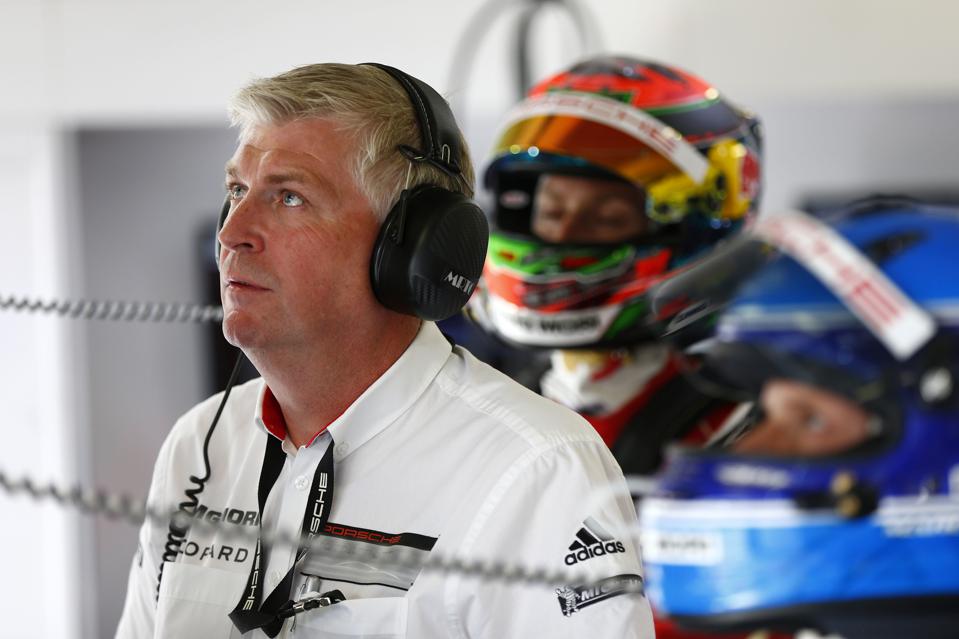
Former Porsche and Audi development head Wolfgang Hatz, seen here at the 2015 Le Mans 24 Hour race, … [+]
Corbis via Getty Images
A lawyer for Hatz has said his client is innocent and would answer the charges “in detail”.
Hatz was imprisoned without trial for more than six months last year and was finally released on bail with strict conditions, including a €3 million bond, reporting twice daily to the Stuttgart police station and surrendering his passport.
Stadler was arrested in June 2018 on suspicion of evidence tampering and held in custody without charge for four months, with prosecutors insisting they had reasonable suspicions that he may influence witnesses.
His arrest came just one month after he signed a new five-year contract as Audi’s CEO; a contract pilloried across the car industry at the time, given the so-called “Acoustic Function” emissions software cheat at the heart of Dieselgate originated at Audi.
He resigned from the Volkswagen Group on October 2018 after 11 years at the helm of Audi, though his €8-million payout is dependent on him being found innocent of all charges over Dieselgate.
According to the indictment read to the Munich court, he has been charged with fraud, false certification and criminal advertising for continuing to sell tainted vehicles even after the cheat came to light.
Unlike Hatz, Stadler was not originally a target of suspicion by prosecutors over the development of the Dieselgate cheating system.
Stadler himself said, during the Detroit auto show in early 2016, that he was an economics man, rather than an engineering man, and that it was credible that he didn’t know about one or two lines of software code in 20 million.
His actions since the Dieselgate revelations caught their attention, though.
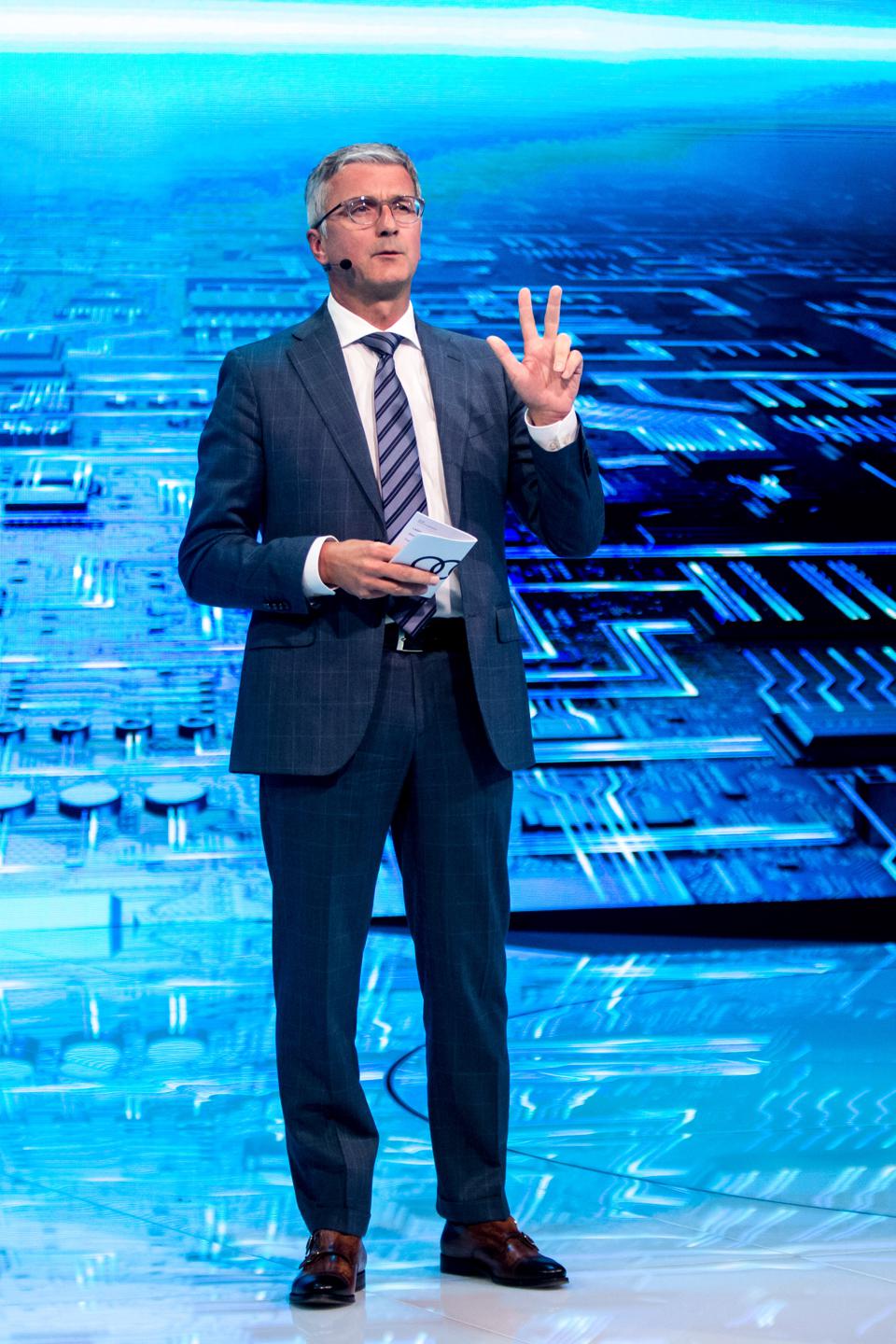
Stadler was moved on from the Volkswagen Group in October 2018, with the stain of Dieselgate thought … [+]
Getty Images
“Defendant Stadler is accused of having been aware of the manipulations since the end of September 2015, at the latest, but he did not prevent the sale of affected Audi and VW vehicles thereafter,” the prosecutor’s statement read.
The case will not be heard in a traditional Munich courtroom. Media interest and Covid-19 precautions forced it to be moved to a Justice Department building in a Munich suburb.
Both Hatz and Stadler have long denied their part in the scandal, while Audi itself refused to comment beyond insisting that both men were entitled to be presumed innocent until proven guilty.
Escaping the Dieselgate drama has looked improbable for Stadler since former Audi engineer, Ulrich Weiss, told a German court in 2017 that the Audi boss had been aware of the illegal software earlier than he admitted.
Another engineer, Giovanni Pamio, so spent four months in jail last year and was released after extensive questioning.
There have been two successful prosecutions over Dieselgate in the US.
The first saw Volkswagen engineer, James Liang, jailed for 40 months after pleading guilty to conspiracy, despite cooperating with prosecutors.
The other was Volkswagen compliance executive,
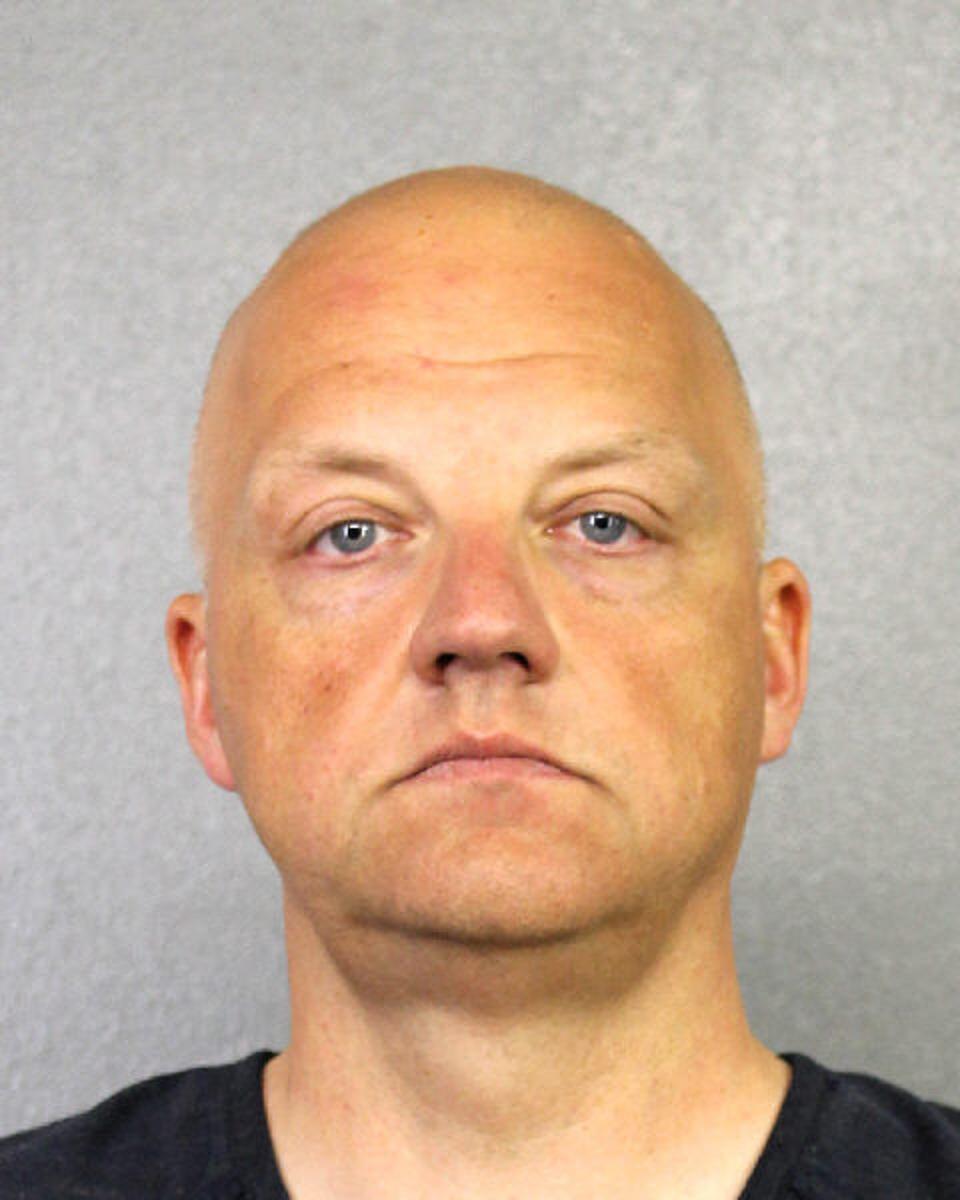
Volkswagen employee Oliver Schmidt is serving seven years in a US prison for conspiracy to commit … [+]
Getty Images
Oliver Schmidt, who was jailed for seven years after pleading guilty to conspiracy to defraud.
Volkswagen has already paid out more than €30 billion in fines, compensation and legal bills over Dieselgate, but it may not yet be over for the Wolfsburg giant.
It settled out of court with 235,000 customers in April, with a one-off €750 million payout, and it has now been ordered to buy back at least one cheater diesel car from its owner, which may set a dangerous precedent.
Stadler had an estimated personal wealth in excess of €100 million before the crisis. Volkswagen Group annual reports showed his baseline contract with Audi brought him about €15 million and his Volkswagen Group board seat another €5.25 million in 2017.
Volkswagen was also criticized for paying out more than €13 million Hatz when it sacked him over Dieselgate.
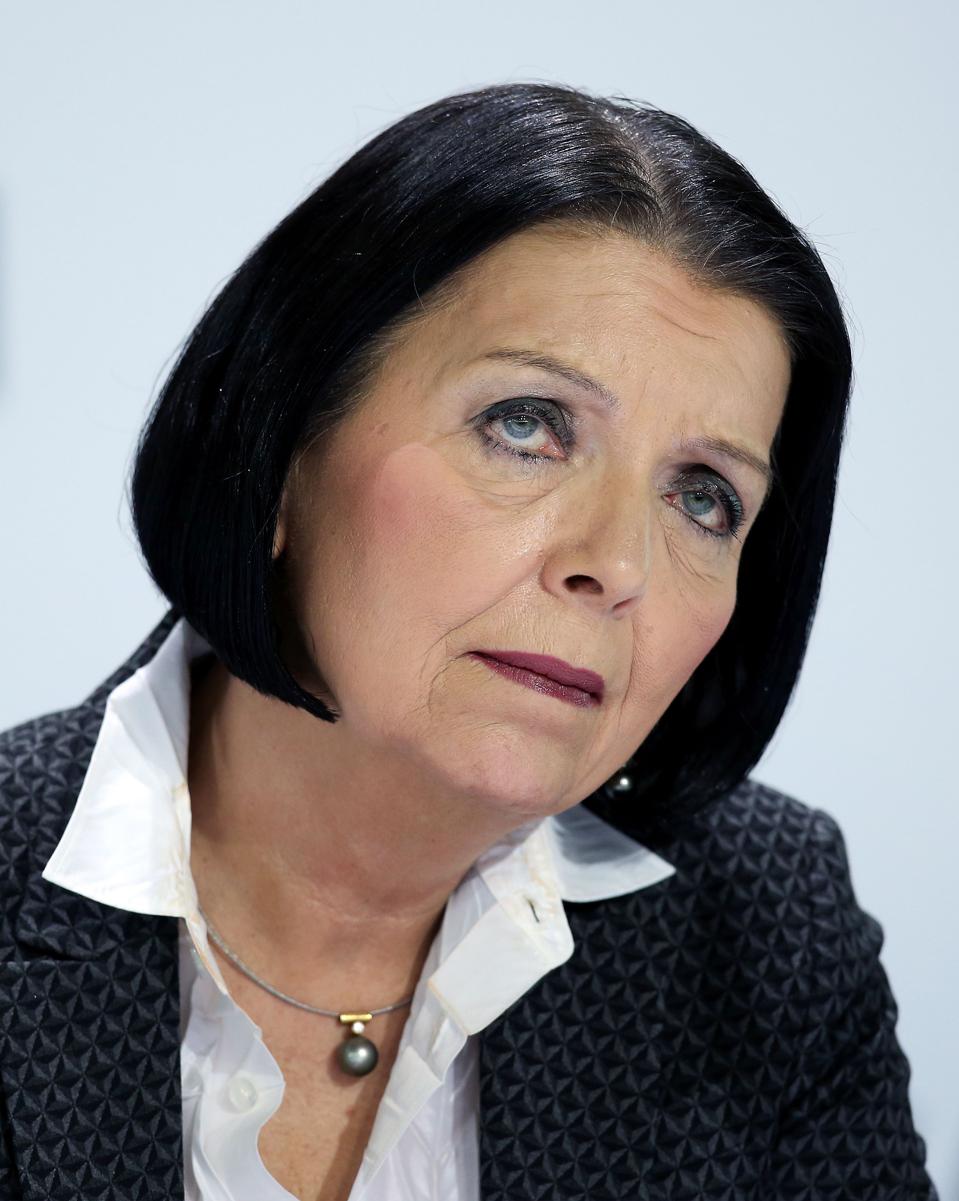
Christine Hohmann-Dennhardt briefly became the Volkswagen Group’s board member for integrity and … [+]
AFP via Getty Images
It even paid out big money to the executive it brought in to clean up its culture at the height of the crisis.
It paid lawyer Christine Hohmann-Dennhardt €6.3 million to buy her out of her Daimler contract so she could be parachuted in as its board member in charge of Integrity and Legal Affairs, then paid her €6.9 million to leave 13 months later.
*** This article has been archived for your research. The original version from Forbes can be found here ***